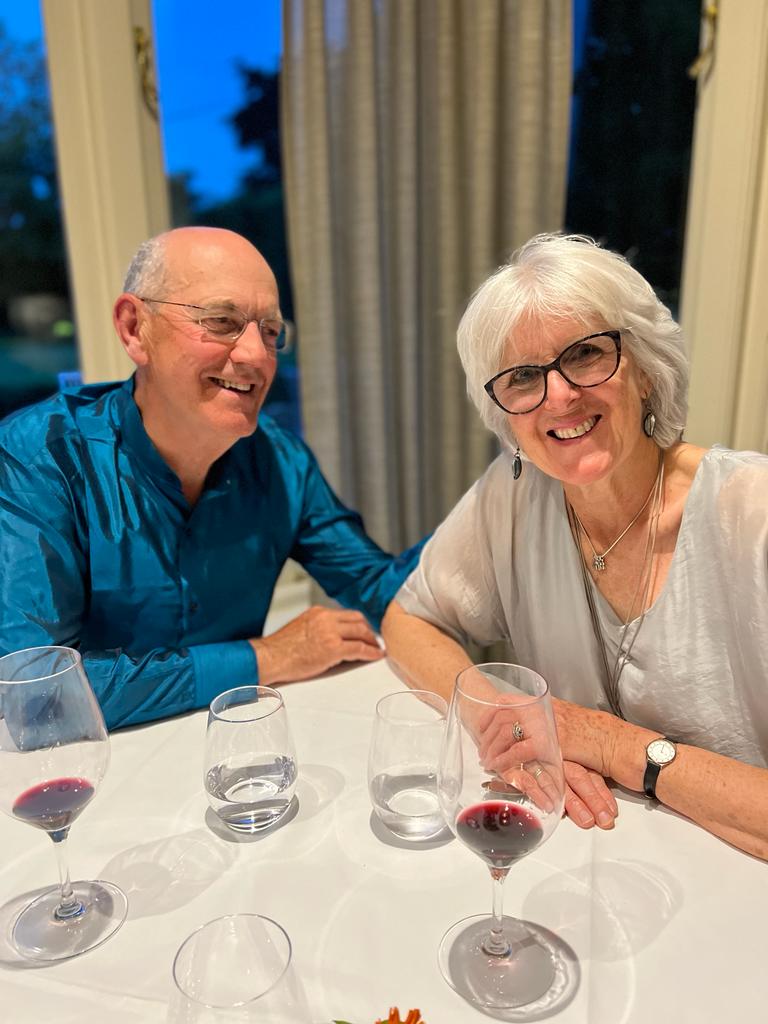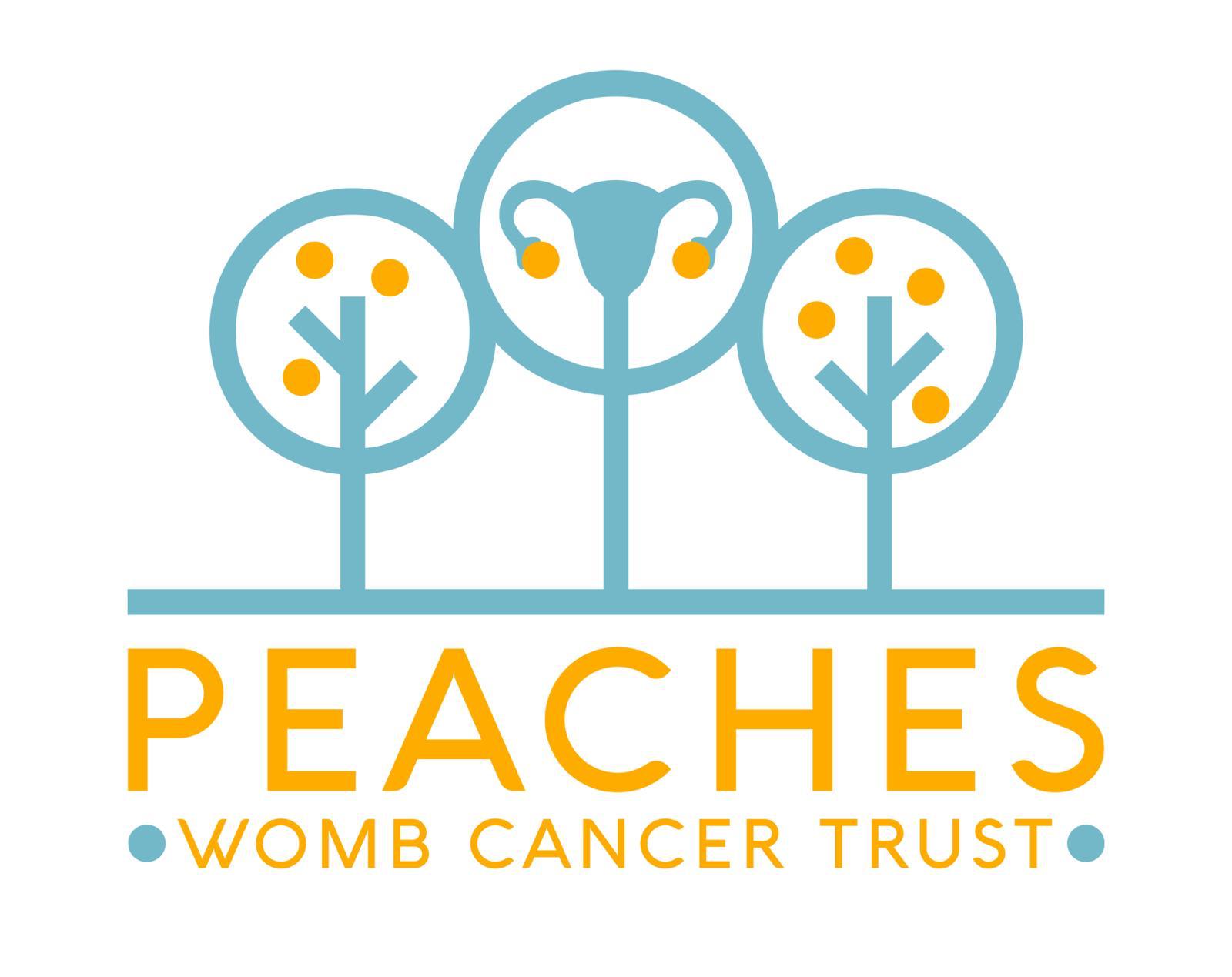A Personal Journey after Womb Cancer Diagnosis
Lavinia’s Story Part II

Lavinia Winch
YES Ambassador
This is the second in a series of three blogs written by Lavinia about her womb cancer experience.
We were delighted that Lavinia joined us alongside Julia Pugh, a psychosexual therapist, for an evening webinar on intimate health changes and sexual wellbeing after womb cancer treatment in May. You can watch the webinar here.
Intimate health issues are extremely common following womb cancer treatment and are often not discussed or addressed. The webinar explored and offered advice on some of these issues.
Lavinia’s Story Part II
Recovery from a radical hysterectomy performed with keyhole surgery can be fairly straightforward if you are in good shape before the operation, and after a week of bed rest and a further week of gentle activity, I was feeling well enough to attend the British Society for the Study of Vulval Disease (BSSVD) medical conference in Oxford. I was aware that any lifting was to be avoided, but happy to be back at work in my role as Medical Liaison for The YES YES Company. The BSSVD is a member organisation for health care professionals carrying out research into the causes of vulval disease, developing guidelines for treatment and relieving the suffering of patients with these conditions. This resonates with me, because from personal experience, I am aware that vulval health is just as important as vaginal health at all stages of our life. This is particularly important during and after menopause and post hysterectomy due to the changes to our vulval tissue as a result of oestrogen depletion.
At the time of my diagnosis and pre-surgery, I was given a Macmillan Cancer Charity booklet on Cancer and Sexuality. However, at this point, sex was very far away in my mind, and I wanted to concentrate on being strong and positive about the surgery and outcome. I had been advised to stop HRT (oestrogen, progesterone and vaginal oestrogen in the form of Vagifem pessaries) until the pathology of the tumour was analysed. As a result, after surgery, symptoms of vaginal and vulval dryness returned and I experienced some daily discomfort.
It is completely natural to feel anxious about sex after a hysterectomy for womb cancer, and important to acknowledge the changes, both physical and psychological. My libido was at rock bottom, but I felt a sense of grief over the lack of intimacy, and I was missing the feeling of closeness that we experienced as a couple after making love prior to my diagnosis. I also felt guilty and somehow responsible for the new situation we found ourselves in.
Vaginal dryness at any time of our lives can cause sex to be painful and there may be many reasons, but the first thing is to ask for an examination either by your surgeon, or by a gynaecologist. If everything is normal then it’s time to consider the new you and develop a plan for where you would ideally like to be in terms of intimacy with your partner, if you have one, or if not in a relationship, finding your own way to sexual pleasure.
The removal of the cervix can change the shape of the top of the vagina and shorten the length. This can lead to some discomfort or pain, so it’s really important to communicate this to your partner and go very gently when you first have penetrative sex.
Equally important, is to use a natural lubricant without any irritating ingredients. Unfortunately many standard lubricants are formulated with glycerine and glycols which, although offer some temporary relief from friction, can cause irritation over a longer period or with repeated use.
My personal experience of returning to intercourse was challenging because I found it painful. I was lucky enough to feel comfortable about asking for help and had access to invaluable support from Samantha Evans, an ex-nurse and co-founder of sex toy company Jo Divine. Sam and I had often met at work events and she has written numerous articles about sexual health and pleasure, including the challenges of sexual recovery after cancer.
Even though my husband has always been the most sensitive and understanding partner, I needed to find a way to feel confident about making love. This is where dilators (sometimes referred to as trainers) or vibrators can be very helpful because they allow you to be in control and with plenty of lubricant you can explore what might be comfortable for you.
The range of YES organic lubricants are perfect for this stage of recovery. I used YES OB organic plant-oil based lubricant as it is so gentle and nourishing for vaginal and vulval tissue. Dilators are available on the NHS, but the standard products are hard plastic, whereas there are now a variety of silicone, flexible dilators available and most vibrators for vaginal use are much more beautifully designed than in the past.
Having gained confidence from using dilators and vibrators, I finally felt ready to resume making love with my husband, but I still experienced some pain with deep penetration. At this point, I went into full research mode and discovered something which has since become game-changer for us both. The weirdly named Ohnut (because it is shaped like a series of doughnuts!) was developed in the USA after a round of crowdfunding and is now widely recommended by psychosexual therapists, pelvic physiotherapists and gynaecologists. Ohnut is the first intimate wearable device that allows couples to explore comfortable penetration depths. It is a series of comfy soft silicone donut shaped rings that are worn externally at the base of a penetrating partner (shaft or toy) creating a safe buffer against the entrance to the vagina and preventing the pain which can occur due to a shortened vagina after surgery.
Opening the conversation about using a device such as Ohnut can be tricky, and you may need a sense of humour, but the great thing about the Ohnut is that it is cosy and comfortable for your partner to wear, and they are able to stop worrying that they may hurt you.
After a few months, I was able to resume taking oestrogen only HRT in the form of an oestrogen patch and Vagifem which helped to reverse the symptoms of vaginal dryness. I also used YES VM vaginal moisturiser on the days I was not applying Vagifem to help hydrate the vaginal tissue. Having had a hysterectomy, it was no longer necessary to add in progesterone because it is prescribed to protect the lining of the womb. It is not widely known that these treatments also help to alleviate bladder symptoms such as frequency and urgency.
One final tip for anyone resuming sex after womb cancer surgery and treatment. Water based lubricants feel very natural but are absorbed fairly quickly. If YES OB plant-oil based lubricant is applied first and then YES WB water-based on top, or on the partner or toy, this ‘double-glide’ effect ensures a lack of friction and provides longer lasting comfort.
Seven years after my initial diagnosis, my husband and I have accepted that our sexual relationship is not the same as before, but with the help and support of professionals and with knowledge gained from my work in the world of women’s health, we have learned to adapt and manage our expectations. As I approach my seventieth birthday, I no longer feel the burden of guilt, nor am I still grieving for that initial loss of intimacy. It hasn’t been a walk in the park, but we have managed to keep communication at the heart of my recovery and worked together to arrive at a peaceful place of maturity and contentment.
If you’d like to explore the products Lavinia has mentioned in her blog, we have included the links below:

